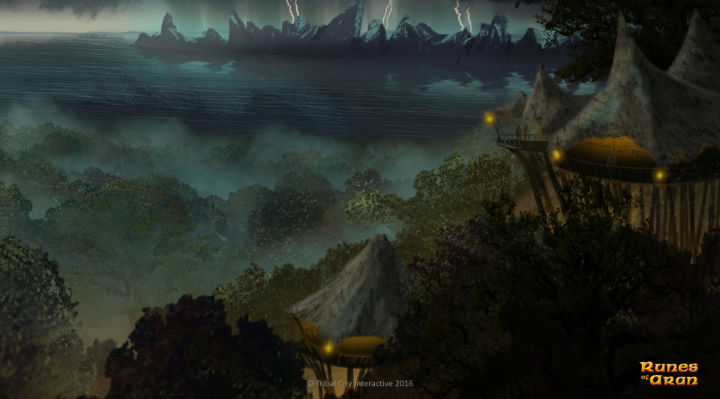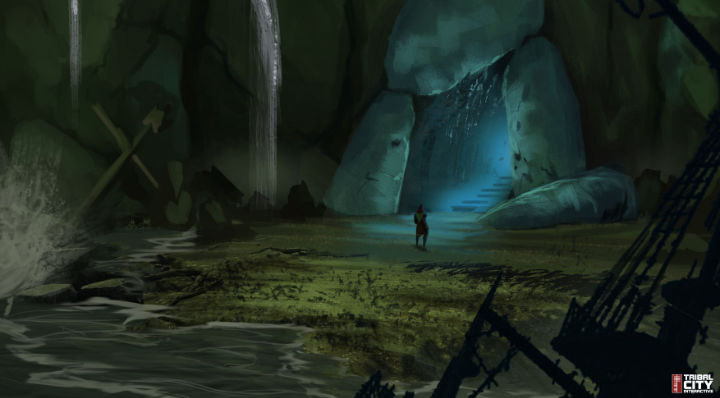Alan Duggan – CEO, Tribal City Interactive
A veteran of the mobile games industry, Alan is the CEO of Tribal City Interactive, and is part of a new games hub in the Centre of Creative Media and Arts.
More from...
Tell us about your background
I grew up in Annaghdown, where I'm now living again. I went to secondary school in Headford, and went to college first in RTC, GMIT now; that was primarily because I was 16 going to college. Essentially, my mother sent me to school really young because they needed the numbers and intended to hold me back, but it never happened. So rather than send me off to some strange city on my own as a 16-year old, I went to college in Galway; she thought that would be safer for me.
What did you study?
Electronic Engineering - that was primarily because there was a very good friend of mine, Colm Duffy, was doing electronic engineering and I thought, 'That sounds good'. A lot of that is what I think about now with our eldest coming towards Leaving Cert - when you understand so little of what it is that you actually want or where you want to end up or what you want to end up doing. So I started in GMIT - spent three years there. Met my now wife, Eleanor, in my second year there. Then I went to Limerick to NIHE, now UL, and did two years in Computer Engineering. I graduated in 1990 - it feels like an age ago.
Computer science generally involves starting at the front end and you work down, so you're working with requirements and what people want to see. On the engineering side, you're starting from the chips up, which has actually served me really well. Not just the understanding of computers, but as an engineer, you're taught process. I see that now in my approach to problem solving; it's very driven by my engineering background. With other graduates, they don't necessarily have that same built-in process. Maybe they beat it into us, I'm not sure.
So your first instinct is to break down the problem into small enough chunks. Often people will scope things and let the scope drift, but for an engineer, it's like, 'Stop now, you can't be doing that shit because here's what we're building'. It's all about defining and managing, so scope creep is a scary thing. It does give you a slightly different view on things.
I joined a small outfit in Dublin and I was coding in C. At the time, most graduates were leaving the country because there wasn't much work here and that was true for engineering, for an awful lot of different graduates. Out of my class, up to 90 per cent of them left; a lot of them ended up in Japan and Korea.
That started a stint of about six years of working in Dublin. I did the whole hellraiser thing during that period when I was in Dublin and did a lot of the stuff that now, as an employer, I would be just shaking my head going, 'For God's sake lads, Jesus Christ'. I suppose you have to get that out of the system too. That company went under - my first experience of a company going under. I actually worked there for quite a while without pay because they couldn't afford to pay me. It taught me a lot though, not just about a company that's failing, but about the team and how you build a team. The reason that we were working there without pay was that we were really committed to what we were doing and didn't want to let anybody else down. But it got to the stage where I couldn't survive anymore without pay, so I moved to An Post, to their PC support department. That was an education as well.
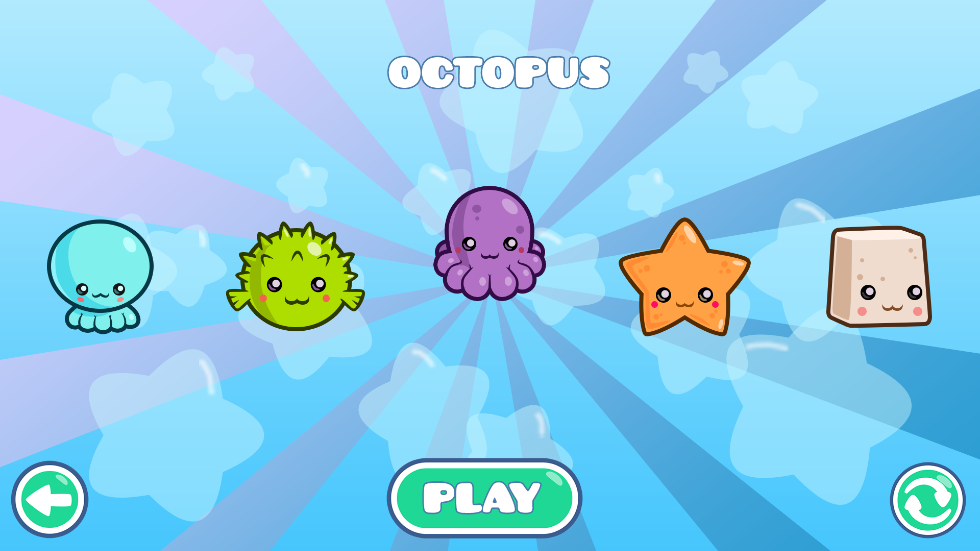
I spent a lot of summers throughout college working in the States and I always particularly loved it, primarily because of the attitude over there. The one thing that stuck with me most is that people are willing to take a chance on you and if you're willing to put the work in, you'll do well. They'll accept you at face value - they don't have any preconceived ideas that 'you're not fit for that job'. Since then I've nearly moved to the States on five occasions, and that's from before we were married and to being married with three kids. For one reason or another we've ended up still being here.
Around '96, there was a company hiring in Galway. So I was interviewed and hired on the spot. I was with that company for four years in the CRM (Customer Relationship Management) consultancy business. I worked abroad quite a bit during this time. In early 2000, I went out on my own doing consultancy work, mostly in CRM, and we specialised in mobile.
Around this time, the first Lord of the Rings film had come out, and as a kid, I was a gamer. I'd be big into fantasy and when that film came out, I was blown away, as so many other people were. After that, I was reading the books back to back for a couple of years. There were a number of games that came out after that which were horrendous. The company that did them had a licensing deal, but it was quite obvious that it was an attempt at commercial exploitation of the brand. They didn't work because they had very little engagement. I knew so much more was possible. The dreamer in me thought, 'I can do a hell of a lot better than that. So at that point, I moved from enterprise to games. Then the harsh reality of actually making games made itself blatantly obvious to me. For a lot of people, it's a rude awakening when they start making games because lots of people play games, they love games, they think it's wonderful and they go, 'I want to make games'. Then it's like, 'Oh shit, it's hard'. So like everybody else, I went through that.
At the time, there wasn't any connectivity or communication between people, so what grew out of that over the following three years was this idea of building games that people could play together - this was before Facebook, so we didn't have the term 'social'. I started Nephin Games and patented a community platform that powered all of our games at the time, but that was our term - 'community powered games' - it's a real mouthful.
We got a deal with ESPN in the US, which eventually led to a deal with Disney, which led to a deal with Warner Brothers, which gave us a position that had we been able to continue, it would have put us in good stay. Once we managed to get into the club and people were willing to have us build games for them, it wasn't really a problem getting work. Having what we offered in addition to the game valued, however, was a problem. While people were saying, 'That sounds good', they weren't actually willing to pay us for it. Around this time, the wheels started coming off the wagon in Ireland with property, and the bulk of money that had been raised for the company had come from people involved in property. So funds started to dry up, our cash flow from the deals we were doing wasn't enough to support the platform work we were doing and eventually, the wheels came off the wagon for us as well and we were liquidated in 2007.
There was a lot of learning out of that too. For me, personally, just in terms of how to deal with something you poured so much into, having it fall apart on you. There was a lot of really hard times with staff, letting them go, reducing salaries and that led to a lot of angst. When things finally did shut down, you're left in a void for a while. One is you're obviously in quite a depressed position personally because you have this big failure you're trying to deal with and regardless how much you can learn from it and how much it can be out of your control, as the founder and the lead, it's still yours; the failure belongs to you. You internalise it and you have to work your way through it, but you also go from a hive of activity for a company that's got 20 people, to yourself, trying to start over. So there's all that energy that gets lost. You learn an awful lot about that cycle, about yourself as well.
I was in a bit of a hole for nine months or so. There's the emotional stuff and the psychological stuff but the other key one is financial. You have a family, you've a mortgage, you've bills - they don't care if you're not feeling good today. I did some consulting work for a while, essentially to try to pay the bills and I had a lot of good support locally, as I had built up good relationships with people in other companies and through Enterprise Ireland - that all helped. You really do need that. For someone who's self employed, Ireland offers no support for once you hit the floor. You can't get the dole. These are things you don't want to think about - you don't want to be looking for support, but for everybody, there comes a time when you need something to lean on. But today it's the same, if you're the founder of a company and it goes under, then tough, the State's not going to help you, which is horrendous. It does harden you though and that's the good thing.
I'm an optimist, I believe that no matter what happens, I will always manage to do what I need to do to get me where I want to go. I would really hope that when my kids become adults themselves - and they're almost there - they would have a centre that they can use for themselves. I don't depend an awful lot on other people for direction - I absolutely will take advice, I will absolutely lean on people for help, but if my internal radar has pointed me in a particular direction it's going to be really difficult for anyone else to push me aside from that because I don't need validation so much from other people to make those decisions and I'm ready and willing to take the bumps that might come with it.
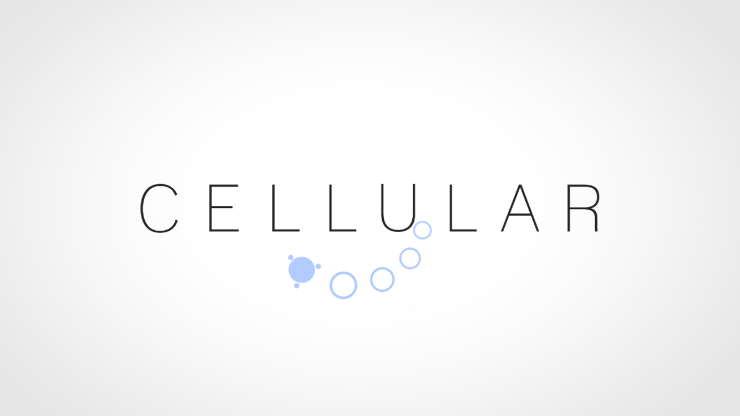
The best part of being the founder of a start-up is you get to choose what you're doing, the worst part is you get to choose what you're doing - you live and die by it because all the mistakes, they're yours. Even if you do something that leads you to a point where you're dependent on somebody else and they make a mistake and that screws you, that's still your mistake for taking them into the position in the first place, so you have to be prepared to suck it up really.
When you screw up, you have to be able to say, 'OK, so I screwed that one up. So now, what am I going to do, am I going to abandon it? Take the part I can use and bring it forward? You start to get very practical and pragmatic about those kind of decisions, which hardens you in some respects. There's an expectation of how organisations and people should behave, if I find myself in a position where a person or an organisation is not behaving in the way that I expect them to or I think they're taking the piss - I'm very intolerant of that. That doesn't meant that I jump up and down and scream and roar about it. More than likely what I'll do is I'll cut you off, so I'm not going to waste anymore energy on you. That has positive and negatives as well; for me, I get to focus on what I feel is important and move forward and for other people, it may seem like I blank them or maybe I'm slow to involve them. I don't at all claim to know how to do it right, I only know how I do it. I'm sure if I was to sit down with a coach, they'd be going, 'Hang on, you can't be doing this'. There's lots of stuff there that I shouldn't be doing, but it works for me and it's gotten me to where I am now.
Another thing you become really aware of is momentum - it's really hard to create and when you lose it and you get tossed all the way down the hill to the very bottom again and you're looking up, going 'Ah Jesus, I have to make my way all the way back there again', so it's very demoralising as well. And it's not just your momentum; if you have a company of 20 people who are all focused on doing the one thing, it's a massive amount of energy that's all going in one direction. You can make so much progress and then you take that away and it's back to just you and it's not you that was there six months prior that's focused on the future, it's you who's just had it kicked out of you, and you're trying to motivate yourself to get back up and go again. It's not easy.
One of the other things I like about the States is that they embrace failure. Failure here still has so much of a stigma attached to it and whether you like it or not, it's ingrained in you from your parents and from society, so you feel it all the more. But really, you have to fail, you have to fail regularly. Fail small, if you can; nobody wants to fail big but even in those big failures, being able to get yourself back off the ground being able to have a network, a support system that facilitates that. We're still not very good at that here, but we're getting better. I think the fact that we've had quite a few people who have been on that journey themselves who are now involved in coaching and investing and the general start-up ecosystem, that's improving, but it's still a hard thing to go through.
It was around then that you set up Tribal City?
Tribal City was probably 2008, and was a gathering together of a few of the people that had worked in Nephin Games before. We were all either employed or consulting ourselves and we were doing this on our weekends and evenings and this continued for a couple of years. By then, I really wanted to do something again. Enterprise Ireland had the Competitive Startup Fund, so we applied to that and we were successful. That was the impetus to creating a new company and bringing people in again. That was 2011. Tribal City has been around since then.
It's going well...
When you talk about games companies in this country, there are very large US, primarily corporates, here who are games companies, but essentially their operations here are call centres or customer support. Now, you have a huge amount of people who are starting up, so whether they're bedroom coders or in college or a few guys getting together to make a game, you have a huge number of indies in the industry. There are a few companies that you could point out that are commercially successful in the country, and so we'd count ourselves amongst that in that we've been funding ourselves through cash flow since 2011, but there's really only a small amount of companies that are doing that in the country. Obviously I'm proud of that, but I'd prefer if we were larger.
You were mentioned by Google in this past week?
Yes, we were very honoured to be included in the Keynote address at Google I/O. While we can't say too much about what we're doing just yet, it is now public record that we're lucky enough to be one of the first developers working on Daydream with Google. We're really excited about that. We have a great relationship with the local Google office in Dublin who have been incredibly helpful.
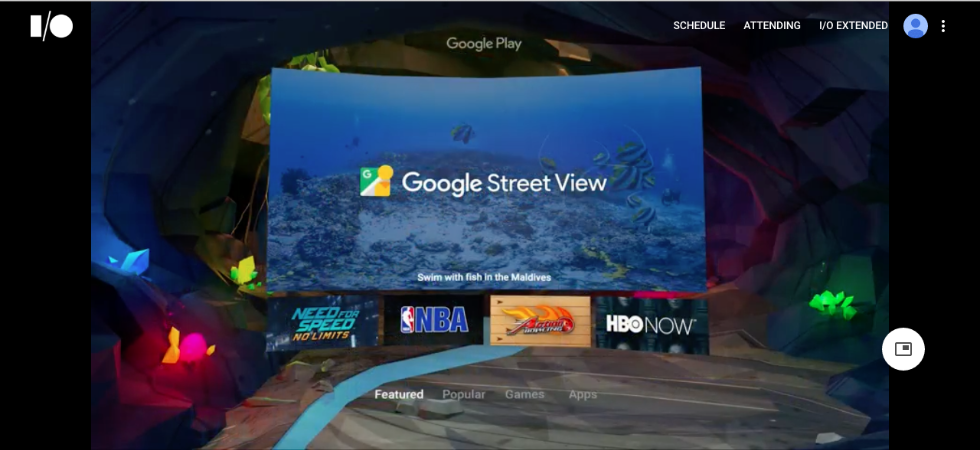
What's your vision for the company?
My vision for the company is to create the next big creative IP on the planet. So to give you a context for where we're aiming, if you think what Riverdance did for Irish dancing, that's what we want to do for games. It's already started, it's called Runes of Aran.
For the trailer, we had a guy in-house who did the concept art and a guy in Dublin, Feidhlimidh Woods, who used After Effects to bring the video together. The game is based on early Irish mythology, on the Lebor Gabála. There were seven races that invaded Ireland, and we're starting with four of those which are the Fír Bolg, Tuatha Dé Danann, Nemedians and the Fomor. We're pulling together both mythological and cultural references, and we're looking to pull together, ideally Irish people, so that we have the same sensibilities involved. But we're looking to bring together people who are at the top of their game to make it happen. Already, we have Michael Scott the author who's written almost 150 books, and a huge number of those were based on Irish mythology. His last series of books, The Alchemist, were on the New York Times bestsellers list. Also Irish, Eimear Noone, who is also from Galway and is one of the composers on World of Warcraft, which is probably one of the biggest fantasy IPs in gaming, is on board to do the music. Eimear's music features in the trailer. To have those kind of creative people around you is amazing. We have Chris Avellone - he's American, but we'll find some Irish heritage for him - he's recognised as one of the top narrative designers for RPG (Role Playing Games). The group of people that I'm bringing together is really about, who are the people who can make this a reality and who can take such a lofty goal to make this the next big IP and bring that to fruition? We're in pre-production on it right now, which essentially means we're working to a point where we can bring funding, distribution, marketing behind it to do a full launch. Our goal is to have the full game in market by 2018.
Where does your drive come from?
I don't know how to answer that exactly and I'm not entirely sure. Some of it for sure is from my father - he's had his own business for donkeys years and in fact, you can see that with my siblings - we've all cut our own road. Some of it too is simply not being willing to accept things just as they are, and so if the way things are is not the way I want them to be, then I'll work on the way I want them to be and figure out how to get there.
Assuming there'd be much more potential and opportunity in the States for your industry, and as you've always been very fond of the US, why have you chosen to stay here?
From a business perspective yes, there would be more potential in the States, but we're already looking at means to fund and distribute that are not Irish. What I'm looking to do with this is not just create an IP for the sake of it, I'm looking to create an IP that will dominate on a world scale. It does have some ambitions in there of 'I want people to experience Irish mythology and culture', but I absolutely want it to make money and it's not just because making money allows us to do the next thing with it, it's because everybody that's involved in getting it to that scale benefits. If it's based here, that means everybody here benefits. That means obviously, very selfishly, me first, but it also means that all of the people that we either contract or have agreements here with or employ, benefits them here. And aside from that, all the other games companies that are here, they'll all benefit from it. The games industry here at the moment is just chomping at the bit. There will be, in the next few years, a breakout hit from Ireland. I'm hoping it will be us, obviously, and it will raise all boats.
You recently moved to the Centre for Creative Arts and Media...
Paddy Tobin, who's running the campus, approached me last year, saying he wanted to bring together a creative hub. If you take the graduates from CCAM to provide an outlet for them to interact with industry, then if those people go abroad or create their own business, you get this ecosystem that the college feeds. He wanted us to come on board, so there's us and Moetion Films - they're an animation studio. Then the conversation evolved from us going in there as anchor tenants, to creating the games hub and bringing more companies with us. I'd have to say that in terms of having a vision, I very much like the vision that Paddy has. He's moving things at a pace that one would not normally associate with a large institution.
It also ticks a lot of boxes for us - the vibe out there is fantastic. It's a college, yes, but it's an art college so you have a huge creative vibe which you can feel as soon as you come in the door. Alongside that, we're looking to create the Galway Games Hub and bring other games companies with us. There's a number of examples around the world, in particular, the Dutch Game Garden, where that has helped tremendously. You get creatives, sitting talking over lunch about the same stuff. It's very hard for someone who's working in games and who's trying to figure out how to animate a character who's doing a fight sequence, when they're having lunch with somebody who writes software for insurance and they're trying to explain to them and it's chalk and cheese. So, at least you're having conversations with the same kind of people.
What would you like to see come from your involvement with CCAM?
Recently, we had EA and Zenimax locally employing lots of people on the customer support side of things for games - obviously hugely important for the support of the game after it's launched. But we've never had the creative side here, the development. The skills are here, although there are some of the skills that are probably more lacking than we would like; some of the colleges are attempting to address that. Another big element of that is attracting people home. If you've got a centre here that's got a runaway success, you need all the grass roots, you need the colleges, you need all the indies. If you're looking from abroad, that starts to look like an ecosystem that you can get involved in where it's not risky. You can come here and you know that your skills will be used and there's an opportunity for you to not just earn what you think is appropriate, but to get the right experience, to work with the right people.
Galway sells itself in lots of ways for people who've been here, but you need to get people to take that first step. The Romeros moved here and they're both creating teams around games that they're working on and attracting talent from abroad. That's for a number of different reasons - the talent aren't necessarily coming here for Galway, they're coming here for the Romeros because they want to work with them. What they are taking on board is the fact that the Romeros have moved here, so when you start to delve into why, it starts to talk to the creative side of the city, the quality of life, and all of those things. To have that same quality of life elsewhere is really, really difficult and it's usually only those who are either incredibly wealthy or incredibly lucky. We're incredibly lucky to be where we are. Galway is always buzzing with young people, tourists, festivals. There's art, there's media too that's now percolating its way through, music and we take all of those parts and bring them together in games. It's one of those reasons that games is difficult, because you have the technical side, which by its nature is systematic; you've got to break it down, figure out how it works and make sure all the parts go together and the creative side, which is all about the emotions, the colour, the music. You're trying to bring all that together, so there's a great starting point for all of that at the moment. If you're involved in any of the events, you can feel it bubbling. Now it just needs someone to pour petrol on it.
- Judith Sibley - Previous
- Next - Donal McConnon

